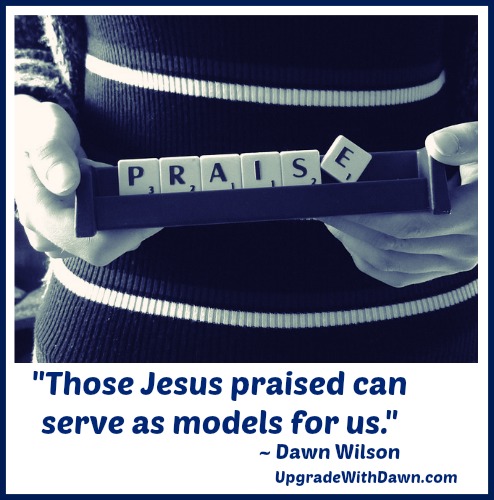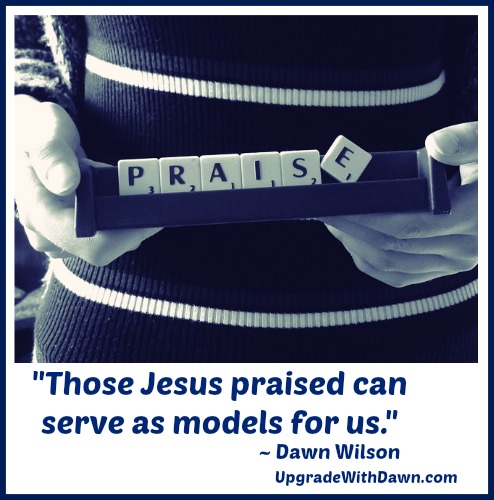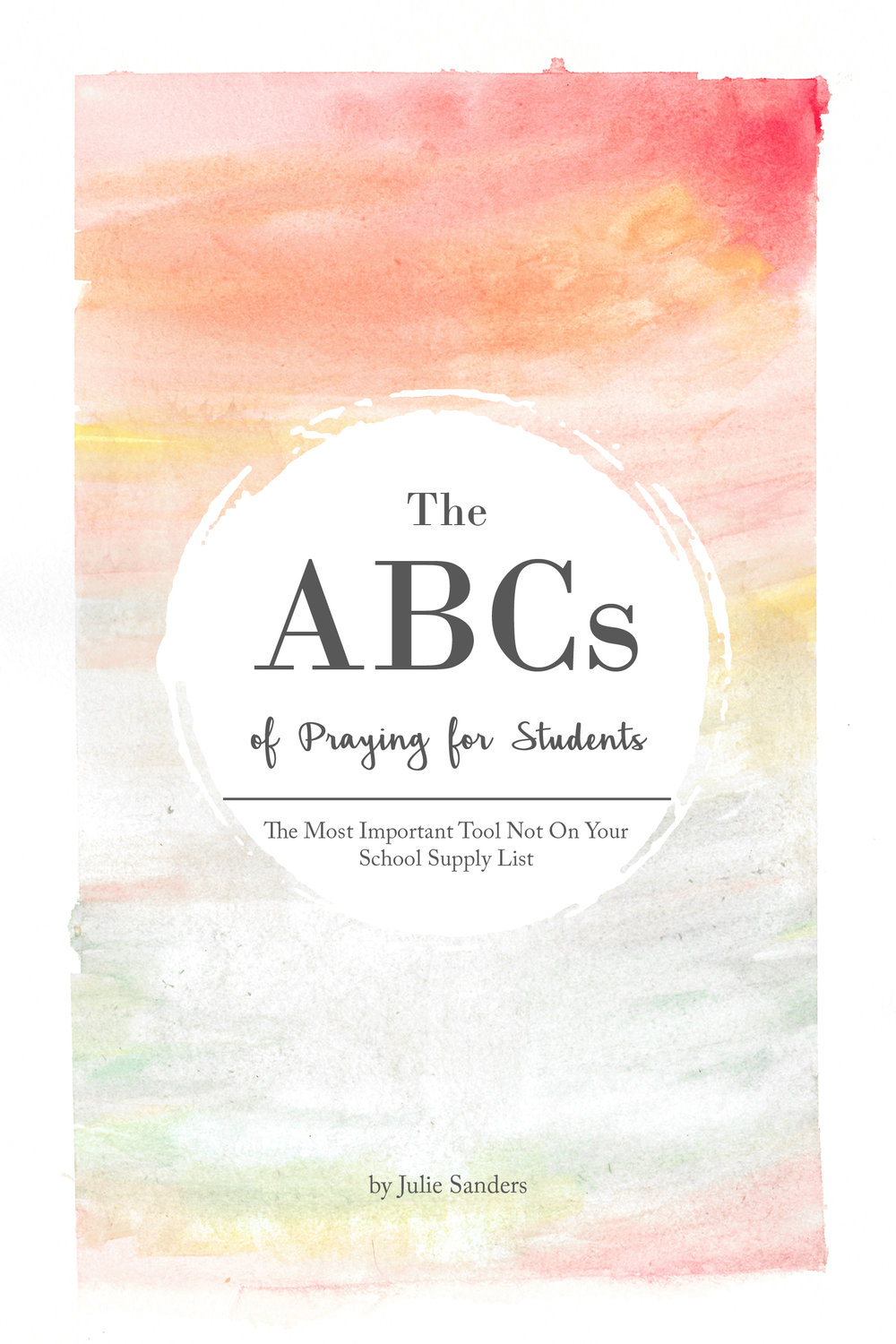Seeking Spiritual Discernment Is Brave
Janet Thompson writes solid, biblical books on a number of tough topics—cancer, prodigal children, infertility, mentoring, etc.—and in this Biblical Thinking UPGRADE, she challenges us to look at the topic of discernment, which is more than just knowing what to do.
discernment, which is more than just knowing what to do.
"Imagine a scenario where you observe a situation and your instinct tells you something isn’t right, but you look around and no one else seems alarmed," Janet said. "Everyone is carrying on as if nothing abnormal is happening.
"Do you intervene or do you walk away?"
Good question! I (Dawn) have often prayed for discernment about a tough situaiton, and then when I got that answer from the Lord, sometimes it was truly hard to follow through. I'm glad Janet is taking the topic of discernment one step further, because sometimes we need courage to obey God's direction!
Janet continues . . .
As women of faith, praying for the spirit of discernment can prove to be a brave and bold request in itself.
When we humbly ask God to reveal His will to us for specific situations, even when others may not see what we perceive, God may ask us to perform courageous acts that could be life-saving or forever life-changing.
We can become the brave spiritual warriors that our world needs so desperately.
We tend to categorize “brave women” as those who go into the mission field or into the military. Police officers, firefighters, first responders. Any woman who goes into a dangerous career, willing to lay down her life for a job, cause or belief is superhero—brave in our eyes.
Or we may only attribute bravery to men.
Typically, we don’t consider that “ordinary” women like you and me display real bravery and courage every single day, often in the routines of life.
We may not realize that a courageous heart makes us “superheroes” to those who know us and especially to God.
How Do We Know When God Wants Us to Bravely Intervene?
James 1:5–6 reminds us:
“If any of you lacks wisdom, you should ask God, who gives generously to all without finding fault, and it will be given to you. But when you ask, you must believe and not doubt, because the one who doubts is like a wave of the sea, blown and tossed by the wind.”
1. Pray.
Prayerfully seek the Holy Spirit’s wise direction and guidance gleaned from reading the Bible and prayer.
Spiritual discernment and godly wisdom lets God guide.
2. Be patient.
Discernment takes time and effort to develop as we grow and mature in our faith and develop an ability to sense God’s plan and purpose in a given situation.
3. Obey.
Expectantly ask God for the willingness, strength, and desire to take whatever action our discernment dictates and let God handle the consequences.
Some Christians are more sensitive than others to the still small voice of God; but with patience, studying—not just reading—God’s Word, and a desire to know God’s will, we all have the ability to seek and obtain discernment to be braver than we ever thought possible.
Maybe you’ve sensed the pain behind a word or facial movement or body stance. You know there’s a sadness hidden behind, “No, everything is fine.”
Discernment is seeing what others may not see or say.
It’s more than just a hunch, or burying our hunch in denial, even when faced with observable evidence of a problem. When we discern a situation, we have a choice—ignore or ask God what He wants us to do about it.
Sometimes, we can wait to take action, but other times we can’t dodge, deny, or dismiss the signs that our discernment is revealing—we’re the ones who must act immediately.
In Everyday Brave, I tell the biblical story of Huldah, an Old Testament prophetess who King Josiah asked to decipher the meaning of the lost “book of the law” found during restoration of the temple. Huldah felt dismay, but not panic, as she resolutely read the words in “the book.” She knew she must bravely tell the king the dreadful consequences of the Israelites’ sin and rebellion.
God wanted her to proclaim the truth, no matter how distressing, from His written Word.
Fortunately, because of King Josiah’s grief over hearing from Huldah about his people’s unfaithfulness to follow God’s laws and His covenant with them, God gave a reprieve of punishment during Josiah’s reign.
Josiah took advantage of God’s grace to initiate a spiritual revival.
Lives saved, spiritually and physically, all because Huldah bravely resolved to interpret God’s Word truthfully, even though it was painful for all to hear.
In moments that require the spirit of discernment, we need to pray for God’s protection and then respond to the Holy Spirit’s prompting. If we ignore the Holy Spirit, we may regret it or even feel responsible for a preventable crisis.
It takes great courage to step out in faith on a revealed truth.
If it’s God’s will, He will be there, giving us the help and reassurance we need when it’s difficult or others shy away from getting involved.
When you act on Holy Spirit–inspired discernment, you’re braver than you know.
So what would you do now when facing a situation you know isn’t right?
Janet Thompson is an international speaker, freelance editor, and award-winning author.  She mentors women in sharing their life experiences and God’s
She mentors women in sharing their life experiences and God’s  faithfulness. Janet's latest book, Everyday Brave: Living Courageously as a Woman of Faith, releases today, September 10, 2019! Among the 20 books she's authored: Mentoring for All Seasons: Sharing Life Experiences and God’s Faithfulness; Forsaken God? Remembering the Goodness of God Our Culture Has Forgotten; Dear God, Why Can’t I Have a Baby?; Dear God They Say It’s Cancer; Dear God, He’s Home!; Praying for Your Prodigal Daughter. She founded Woman to Woman Mentoring and About His Work Ministries. Sign up for Janet's blog/free newsletter at womantowomanmentoring.com.
faithfulness. Janet's latest book, Everyday Brave: Living Courageously as a Woman of Faith, releases today, September 10, 2019! Among the 20 books she's authored: Mentoring for All Seasons: Sharing Life Experiences and God’s Faithfulness; Forsaken God? Remembering the Goodness of God Our Culture Has Forgotten; Dear God, Why Can’t I Have a Baby?; Dear God They Say It’s Cancer; Dear God, He’s Home!; Praying for Your Prodigal Daughter. She founded Woman to Woman Mentoring and About His Work Ministries. Sign up for Janet's blog/free newsletter at womantowomanmentoring.com.
Graphic adapted, Photo courtesy of Bethany Laird on Unsplash.
 1 Comment → Posted on
1 Comment → Posted on  Tuesday, September 10, 2019 at 11:22AM
Tuesday, September 10, 2019 at 11:22AM  Biblical Discernment,
Biblical Discernment,  Bravery,
Bravery,  Choices,
Choices,  Christian bravery,
Christian bravery,  Courage,
Courage,  Discernment,
Discernment,  Janet Thompson,
Janet Thompson,  Upgrade with Dawn,
Upgrade with Dawn,  Wisdom Upgrade Your Life
Wisdom Upgrade Your Life  Biblical Thinking,
Biblical Thinking,  Wisdom
Wisdom 












